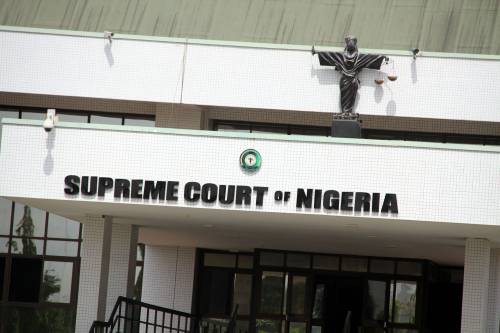
S’Court says non-transmission on IReV didn’t affect outcome of poll
… Not ground for election nullification

The Supreme Court has ruled that the failure of the Independent National Electoral Commission to transmit the election results on the INEC Result Viewing Portal did not affect the outcome of the presidential election.

Justice Inyang Okoro, leader of the five-panel of Supreme Court justices, gave the ruling on Thursday in the appeals filed by Peter Obi of the Labour Party (LP) and Atiku Abubakar of the Peoples Democratic Party (PDP), challenging the Presidential Elections Petitions Court (PEPC) which upheld Bola Tinubu’s February win.
He said the petitioner seeking to nullify an election must show noncompliance substantially affected the election.
According to him, the appellant abandoned the duty placed on them to prove noncompliance but relied solely on the Independent National Electoral Commission’s (INEC’s) inability to electronically transmit the election results to the INEC Results Viewing (IReV) portal.
Justice Okoro said the Electoral Act empowers INEC to determine the mode of transmission of election results.
He said a court should give a holistic interpretation of the constitution. According to him, such an interpretation must be people-oriented, adding that a narrow and selfish approach should be avoided.
He says the interpretation of law must be such that it will reduce law-making to absurdity, noting that he sees merit in the issue as raised by the appellants and dismissed it.
The decision of the PEPC is unavailable, Justice Okoro says.
“The interpretation of the constitution should serve the generality of the people Let me drive this matter home,” he said.
“Are saying that if a candidate scores majority votes across the country but fails to win the election in the Federal Capital Territory. Can’t the candidate be declared president?”



